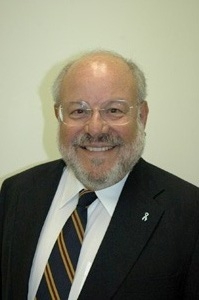Despite a modest budget of $80,000, she received 41.3 percent of the primary vote, 32,411 votes, to 58.7 percent, 46,116 votes, for Foster.
As to the Republican whom Foster will face on Election Day, it is Rick Laib, a Trumpster and sergeant in the Will County Sheriff's Office, who stresses his opposition to abortion and the right for people to carry guns.
Laib told Chicago.suntimes.com: "We must end abortion and protect human life," and also, "Allow those who wish to carry firearms to do so. Encourage concealed carry... Work to expose the illogical and unsafe thinking behind gun-free zones." Further, he said, "Social Security was designed to be an anti-poverty assistance for individuals later in life; we must return to its economical roots." And as for climate change: "There is an absence of consensus among industry experts as to the threat of climate change".What is incumbent on the federal government, then, is to reduce taxes so that private industry will be free to develop helpful practices." Click here.
In his farewell address as president in 1961, Dwight Eisenhower warned of the rise of a "military-industrial complex" in the U.S. In fact, according to Douglas Brinkley, formerly director of the Eisenhower Center for American Studies at the University of New Orleans, the original draft of the speech warned not only of a "military-industrial complex" but of a "military-industrial-scientific complex". Because of the "urging" of Eisenhower's science advisor, James Killian, said Brinkley, the word "scientific" was eliminated. (Brinkley is now Katherine Tsanoff Brown Chair in Humanities and professor of history at Rice University.) Click here.
Remaining in Eisenhower's address were other words on the issue. Eisenhower said "in holding scientific research and discovery in respect, as we should, we must also be alert to the equal and opposing danger that public policy could itself become the captive of a scientific technological elite".
Eisenhower also said: "Akin to, and largely responsible for the sweeping changes in our industrial-military posture, has been the technological revolution during recent decades. In this revolution, research has become central; it also becomes more formalized, complex, and costly. A steadily increasing share is conducted for, by, or at the direction of, the federal government. Today, the solitary inventor, tinkering in his shop, has been overshadowed by task forces of scientists and laboratories."
The chain of U.S. national laboratories which grew out of the crash program of World War II to build atomic bombs, the Manhattan Project, was -- and is -- the base for much of the scientific establishment about which Eisenhower was concerned.
David E. Lilienthal, first chairman of the U.S. Atomic Energy Commission, used similar words to those of Eisenhower in his 1963 book Change, Hope, and the Bomb. He wrote how now "scientists are ranked in platoons" and "the independent and humble search for new truths about nature has become confused with the bureaucratic impulse to justify expenses and see that next year's budget is bigger than last's". He spoke about the "elaborate and even luxurious [national] laboratories that have grown up at Oak Ridge, Argonne, Brookhaven".
In that line he was referring to Brookhaven National Laboratory set up by AEC on a former Army base in Upton on Long Island, New York, where I live, to do atomic research and develop civilian uses of nuclear technology. After the elimination of the AEC, its operation was taken over by the U.S. Department of Energy.
In 1999, three-term U.S. Representative Michael Forbes, concerned about leaks of tritium from nuclear reactors at BNL, spoke out in connection to the radioactive pollution caused by the facility, located in his district. Its two reactors were leaking tritium directly into the underground water table below on which Long Island depends as its sole source of potable water.
As a result of Forbes' criticism of the federal laboratory, he was opposed in a primary for the Democratic nomination by Regina Seltzer, whose husband had been a BNL scientist. BNL personnel manned phone banks to campaign for Seltzer. She won the Democratic nomination over Forbes by 45 votes, but lost to the Republican candidate in the general election. Meanwhile, Forbes, a highly capable representative, was driven out of Congress.
One need not be a scientist at a federal facility involved in atomic science to develop an affinity for nuclear technology. Involvement in the U.S. nuclear Navy can also be a springboard.
Take Congresswoman Elaine Luria.
Her online biography notes "Rep. Luria was one of the first women in the Navy's nuclear power program." She "served two decades in the Navy, retiring at the rank of Commander. Rep. Luria served at sea on six ships as a nuclear-trained Surface Warfare Officer, deployed to the Middle East and Western Pacific." Click here.
In the online biography, Luria, of Virginia, states: "As a nuclear engineer in the Navy, I saw firsthand that nuclear power, when deployed safely and responsibly, can play a key role in our future as a zero-carbon energy source. That is why I introduced the bipartisan Nuclear Energy Leadership Act, which will encourage innovation in the design and deployment of advanced nuclear reactor technologies."
Her Nuclear Energy Leadership Act, introduced in 2019, declares its purpose is to "direct the Secretary of Energy to establish advanced nuclear goals, provide for a versatile, reactor-based fast neutron source, make available high-assay, low-enriched uranium for research, development, and demonstration of advanced nuclear reactor concepts, and for other purposes."
(Note: You can view every article as one long page if you sign up as an Advocate Member, or higher).





